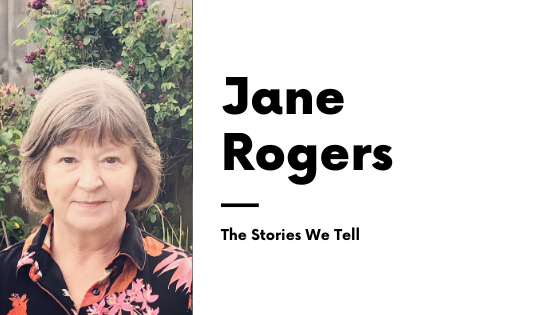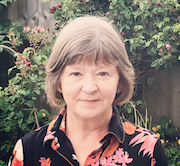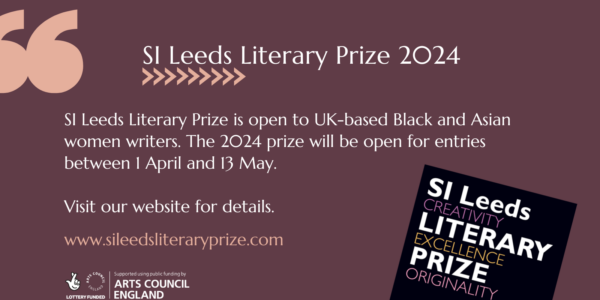Jane Rogers – The Stories We Tell
26 Feb 2021 / The Stories We Tell

Anger
‘Where do you get your ideas?’ It’s a question often asked of writers, and indeed a question I sometimes ask myself. Where do the stories come from? And linked to that, how can I write about life today? How do I process the here-and-now?
There’s a pick-and-mix bag of answers available. Sometimes it’s character, or place; it might be an image or an idea. Often it’s mood or atmosphere. It can also be childhood, history, a dream, a news item; another book or story; or simply a seductive sentence which leads me on. I think novels often spring from a combination of several of these. My all-time favourite answer comes in Virginia Woolf’s preview of To the Lighthouse:
TO THE LIGHTHOUSE is going to be fairly short; to have father’s character
done complete in it; and mother’s; and St. Ives; and childhood; and all the
usual things I try to put in – life, death, etc. But the centre is father’s character, sitting in a boat, reciting We perished, each alone, while he crushes a dying mackerel.
So Virgina’s starting points are: character, place, childhood, ideas (‘all the usual things I try to put in – life, death, etc.’); but above all, an image.
I’d like to tease out one more source of inspiration today, because it’s in my head right now, and it is not claimed as often as some of the others. It is anger. Anger seems to have inspired me quite frequently.
Now I name it, I can trace the feeling right back to my childhood. Not that I suffered any traumas – far from it. My scientist father and full-time mother were loving parents who treated all five of us children with scrupulous fairness. We travelled widely; I went to school in Copenhagen and New York State, as well as Birmingham and Oxford. We weren’t rich, but we were always well-fed and clothed, and we had some brilliant holidays. I was successful at school (apart from maths); I loved escaping into books; I had friends.
But from time to time, like every other child, I was consumed by a burning sense of injustice. My mother would mutter darkly, Life isn’t fair. Sometimes it was personal. My younger brother took a hammer to a visitor’s car when I was supposed to be looking after him, and I got the blame. Not fair. Sometimes it was global. I learned that children in Nigeria were starving, and couldn’t believe my parents were carrying on as usual. I remember berating my father about it.
That burning sense of injustice got channeled into one of the first proper short stories I wrote, when I was ten years old. I entered it for a competition, which is why I still have a copy. The story ‘Twitch’s Christmas Eve’ was an exposé of the loneliness of a rabbit locked up in his cage on Christmas Eve. I have to admit now that I’m not surprised it didn’t win.
The thread of anger at injustice is present – as one strand amongst many, I hope – in most of my books. Separate Tracks was angry about the lack of opportunities in life for a boy brought up in care, compared to a privileged middle-class girl (a thinly disguised version of me). Her Living Image was feminist-angry. The Ice is Singing was angry about the lies and clichés surrounding motherhood and marriage. The TLS called it terse and ruthlessly graphic, but with hindsight I think I’d call sections of it savage.
In later books I hope I’ve learned to be more open and exploratory. I remember hearing Kazuo Ishiguro, in a Q and A session, saying that he writes a novel to explore a territory, and thinking, Yes. Often my motivation in writing a novel is the desire to understand something better – to properly examine it. Or, as Zadie Smith so elegantly puts it, I write in order not to sleepwalk through my life. But the energy fuelling the exploration still often comes from anger. Or perhaps it would be more accurate to say, anger is the catalyst which makes the real elements of a novel emerge.
Promised Lands, my novel about the First Fleet’s arrival in Australia in 1788, is a good example of this. It was sparked by my reading about Lt William Dawes, astronomer to the fleet, who defied the governor’s order to fire upon Aborigines. I was in Australia at the time, and I was upset and angry about the treatment of Aborigines in the present, never mind the atrocities of the past. I wanted to understand what exactly those first colonists had done, to see why it led to such terrible consequences.
My research led me to read many first-hand accounts, mainly by officers, written to capitalize on the contemporary fascination with foreign lands and strange peoples. Obviously, a journal presents the writer’s point of view. And so I learned very quickly that there were no villains. There were idealists, who hoped to bring the benefits of civilisation and Christianity to convicts and Aborigines alike. They may have been misguided, but they certainly had good intentions. There were scientists and map-makers, who hoped to enlarge human knowledge about flora, fauna, geography and astronomy, in a fascinating new world. There were fortune-hunters, who hoped to get rich – but they were not interested in genocide for its own sake. The evil was a byproduct.
And that led me to become increasingly interested in Governor Phillip, the man with the power. His own writings and actions reveal him to have been conscientious and honourable, with a particular affinity for the Aborigines. He longed to communicate with them, but his methods are open to question. He had two men kidnapped. They were not ill-treated – apart from the loss of their freedom. He kept them captive in his own home, sharing his food with them and teaching them English. He wanted to save them and teach their people his values. When his ‘gamekeeper’ (an ex-convict sent out to hunt kangaroos for food) was attacked by Aborigines, Phillip’s strict morality demanded a life for a life. Hence the order disobeyed by Dawes.
Here’s the conversation between the two men:
‘Lieutenant Dawes. I am obliged to you. Your conscience, sir. How does it instruct you?’
‘That I must not take up arms against innocent men.’
‘Never?’
‘Not without a declaration of war.’
‘Even if you are ordered to by your commander.’
‘No sir.’
‘You are a soldier.’
‘Yes Sir.’
‘Then your duty is to your commanding officer. He has the unfortunate responsibility of being your conscience. He clears you of that burden.’ Phillip was pale but utterly in command, precise as ever.
‘Sir, as I am to be judged before my Maker as an individual soul, so I must take individual responsibility for my conscience, and yield that responsibility to no man. I am able to obey my commanding officer only if I judge his commands to be honourable.’
Phillip flushed. ‘You are insolent, Mr Dawes.’
‘I am very sorry if you think so sir, it is absolutely not my desire or intention to give offence.’
‘No,’ said Phillip. ‘Your only desire is to show everyone else how virtuous you are. What would happen if men like you ran the world, Mr Dawes? With your precious consciences? What would ever get done?’
The moral complexity of good intentions leading to bad outcomes has provided subject matter for many a writer, and I’m proud to be in that tradition.
But since Coronavirus struck, I’ve written almost nothing. The combination of a global pandemic and the escalating climate emergency has paralysed me. Delivering food parcels and trying to spread Extinction Rebellion’s message have seemed more logical things to do. How can I process today? In the here-and-now, what’s the point in writing fiction?
Obviously, I have been reading. On my husband’s recommendation, I re-read The Grapes of Wrath, which I last read about forty years ago. Belatedly, I thought about the title. Wrath! An angry book, channelling Steinbeck’s anger into a political, heart-breaking, great work of literature.
Then I re-read George Orwell’s classic essay, Why I Write. He lists four reasons, and the fourth is:
(iv) Political purpose. — Using the word ‘political’ in the widest possible sense. Desire to push the world in a certain direction, to alter other peoples’ idea of the kind of society that they should strive after. . . My starting point is always a feeling of partisanship, a sense of injustice …
He concludes that the dangers of totalitarianism in the post-war world of 1946 are so great that he has no choice but to write with a political purpose.
Looking back through my work, I see that it is invariably where I lacked a political purpose that I wrote lifeless books and was betrayed into purple passages, sentences without meaning, decorative adjectives and humbug generally.
Then I had a proper think about angry books. These are some of the best I’ve read recently:
Robert Louis Stevenson’s The Ebb Tide, featuring a murderous, charming, slave-running Christian called Attwater. He’s a poisonous distillation of all the self-serving evils of colonialism.
Jane Eyre, who suffers a burning sense of injustice at her own treatment at the hands of her bullying cousins, and at the meagre opportunities available to her, as an impoverished single woman.
Chinua Achebe’s No Longer at Ease, which I recently adapted as a ‘Book at Bedtime’ for BBC Radio. Achebe skewers the casual, everyday racism of white civil servants in pre-independence Nigeria, and charts the tragically inevitable downfall of his young black protagonist.
These are great novels because they are character-driven and beautifully written, and because they show us the world through other people’s eyes. There’s no preaching here; Stevenson and Achebe both give us enough insight into Attwater and the white characters, respectively, for us to fully understand why they think and act as they do, even though we may not like it. But in each of these novels there is a flickering flame of anger at injustice, and I believe it is this burning anger which gives them their extraordinary power to move and captivate readers.
Anger alone is not enough, I know. If I set out to write a novel about our venal, short-sighted, money-grubbing politicians, or a future fiction about the appalling effects of man-made climate change, no one (including me) would want to read it. I wouldn’t even want to write it – I’d get bored. Which leads me to consider again how other writers are dealing with the disastrous chaos of the here-and-now. God knows what will come out of the pandemic and lockdown, but the best contemporary novel I’ve read on the here-and-now of our world before Coronavirus hit, is Lucy Ellmann’s Ducks, Newburyport.
Ellmann limits her scope to one woman’s consciousness, interwoven with the story of a mountain lion and her cubs. Into that woman’s mind, flow memories of her childhood and recent illness, and fears for the future. She recounts lists and word games and jokes and her own insecurities. She worries about her family, pollution, politics, gun laws, racism, sexism, poverty, injustice, climate change. I see the chaos through her eyes, and that enlarges my own understanding and shows me I am not alone. The novel doesn’t offer easy comfort, but its skilful structure reveals positives I often take for granted: the power of love, especially maternal love; the joyful ability of small things to distract and entertain; the way courage is forged by danger; the endless ingenious ways in which humans overcome obstacles.
There’s anger here but it does not dominate. It’s counterbalanced by black humour and a kind of baffled delight in the absurdity of life. The novel is a work of art which describes the here-and-now in a way which is both honest and humane. This must be the way to write about 2020-21, which is already a hundred times worse than the idyllic past of 2018 when Ducks, Newburyport was published. I hope someone is doing it.
At the moment all I’m running on is anger; anger and a sense of creeping and helpless despair. Virginia Woolf had a great image to work upon; her father ‘reciting We perished, each alone, while he crushes a dying mackerel.’ There’s irony in that, there’s glorious black humour, alongside the perishing and dying.
Here’s my most vivid lockdown image: from my very first day of delivering food boxes, back in April 2020 when it still felt dangerous to touch anything anyone else might have touched. This cardboard box is heavy, with a litre of milk and lots of cans and vegetables. I set it down on the doorstep with relief. A small frail woman answers the door and we both step backwards. She thanks me and stoops to lift the box. ‘It’s heavy,’ I warn, ‘maybe take out the milk first?’ But she’s already trying to lift it and it slips from her grasp, scattering milk, cans, potatoes and onions across the step. I bend forward quickly to help her and she waves me away with an anguished shriek – ‘Just go! Please go!’ She is terrified by my germ-laden proximity. I walk guiltily away, leaving her scrabbling on the ground for her food.
I guess I need to leave it to stew awhile longer, to wait for the humour to emerge.
Find out more about The Stories We Tell.
 Jane Rogers has written ten novels, a collection of stories, and drama for radio and television. Historical novels include Mr Wroe’s Virgins, set in 19th century Lancashire, and Promised Lands (Writers Guild Fiction winner) which describes the early years of the convict settlement in Port Jackson. She also writes contemporary and future fiction, including The Testament of Jessie Lamb, which was Man-Booker longlisted and winner of the Arthur C Clarke Award 2011. Her new novel Body Tourists is a dystopia set in 2045. Jane has taught writing to a wide range of students, and is Emerita Professor of Writing at Sheffield Hallam University.
Jane Rogers has written ten novels, a collection of stories, and drama for radio and television. Historical novels include Mr Wroe’s Virgins, set in 19th century Lancashire, and Promised Lands (Writers Guild Fiction winner) which describes the early years of the convict settlement in Port Jackson. She also writes contemporary and future fiction, including The Testament of Jessie Lamb, which was Man-Booker longlisted and winner of the Arthur C Clarke Award 2011. Her new novel Body Tourists is a dystopia set in 2045. Jane has taught writing to a wide range of students, and is Emerita Professor of Writing at Sheffield Hallam University.



